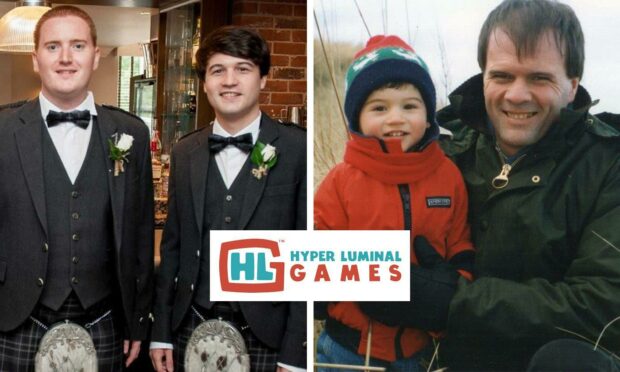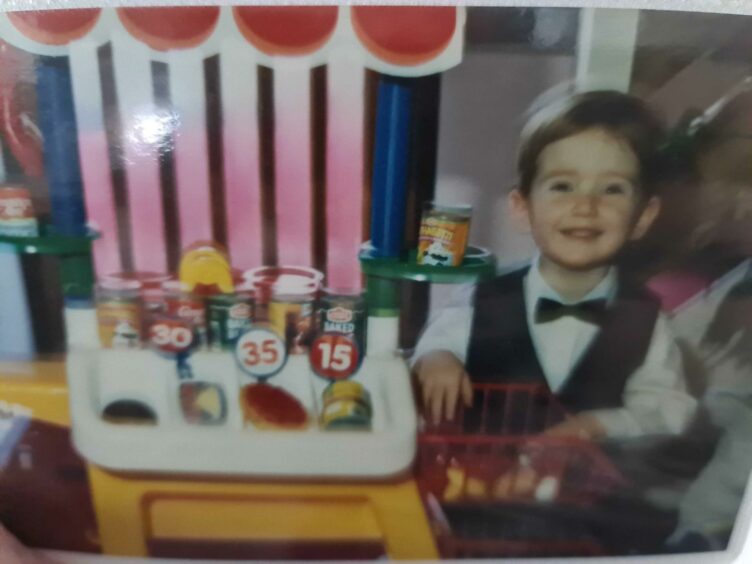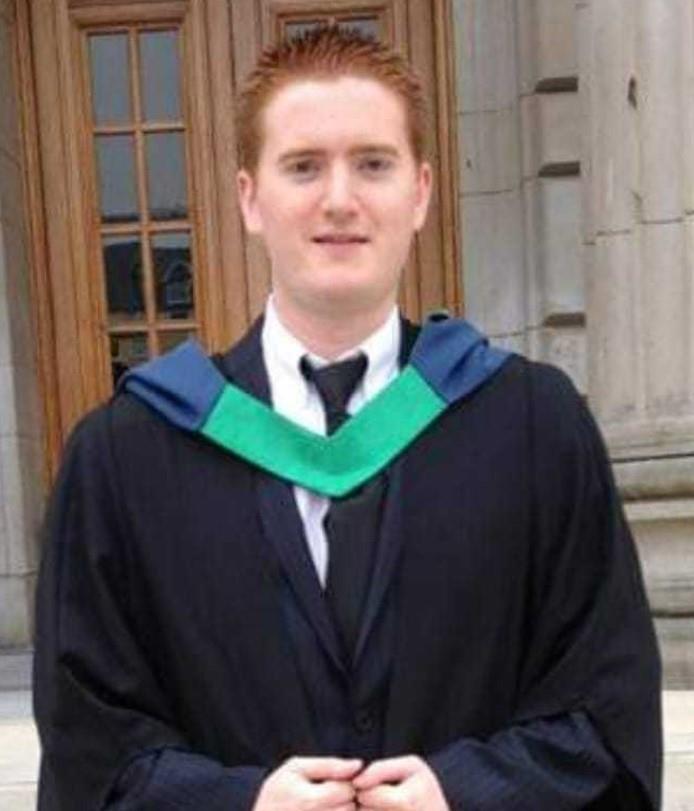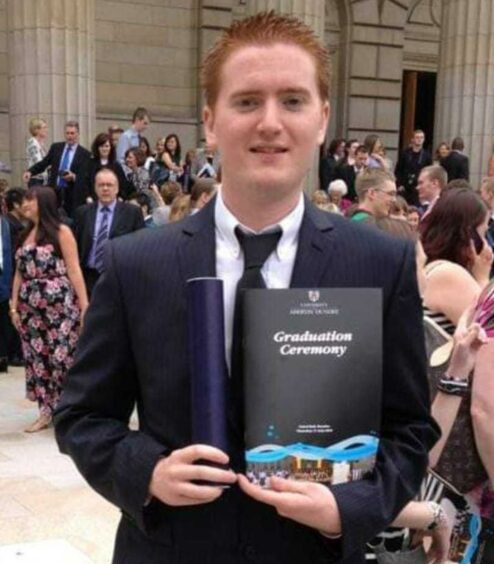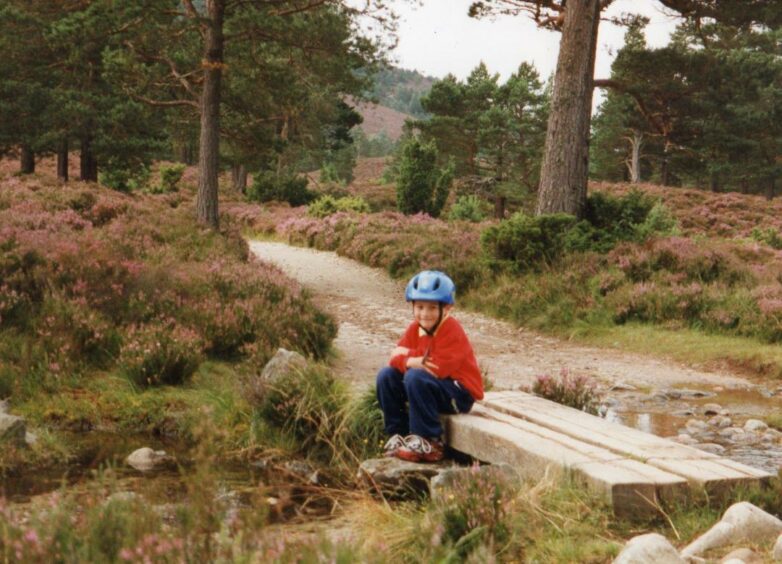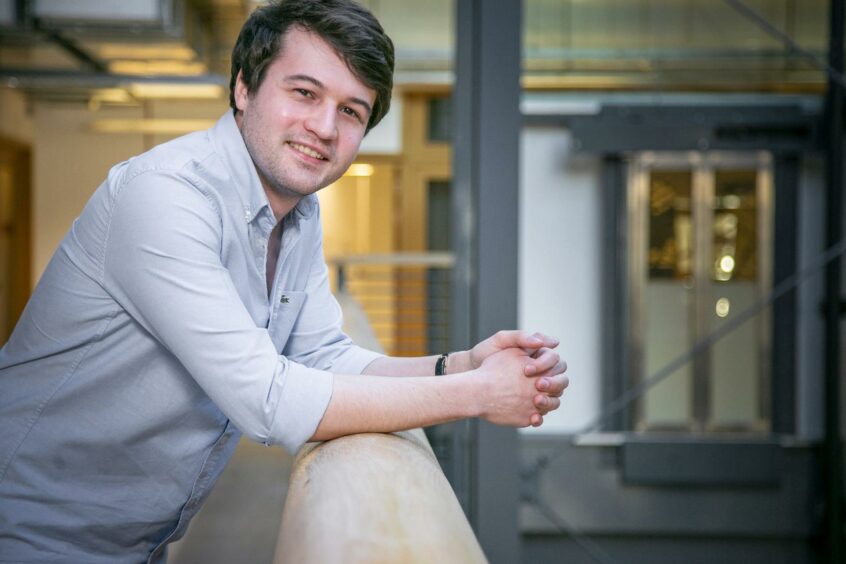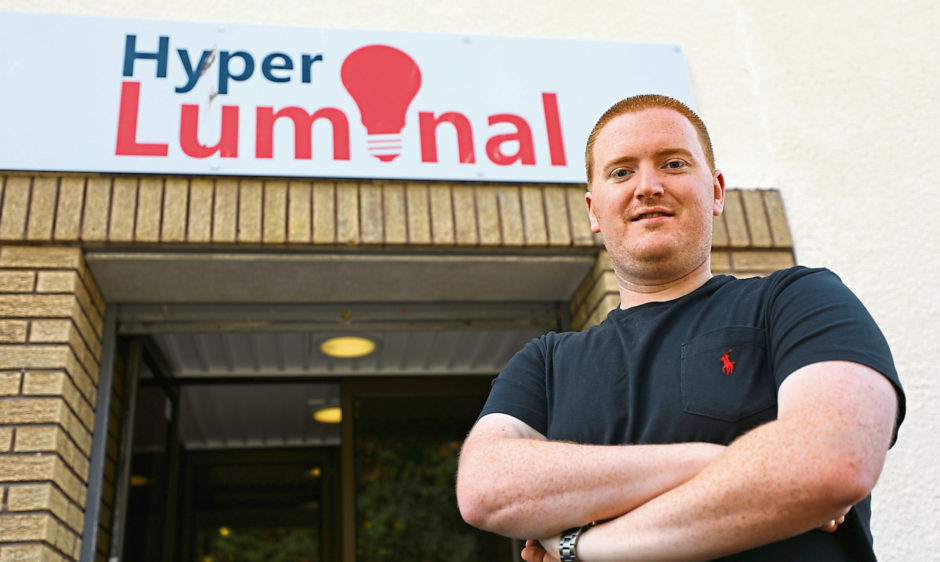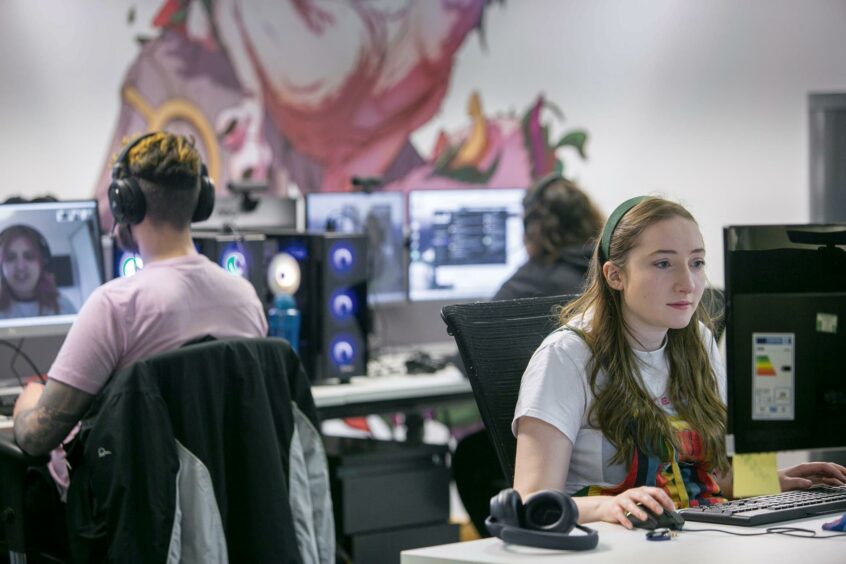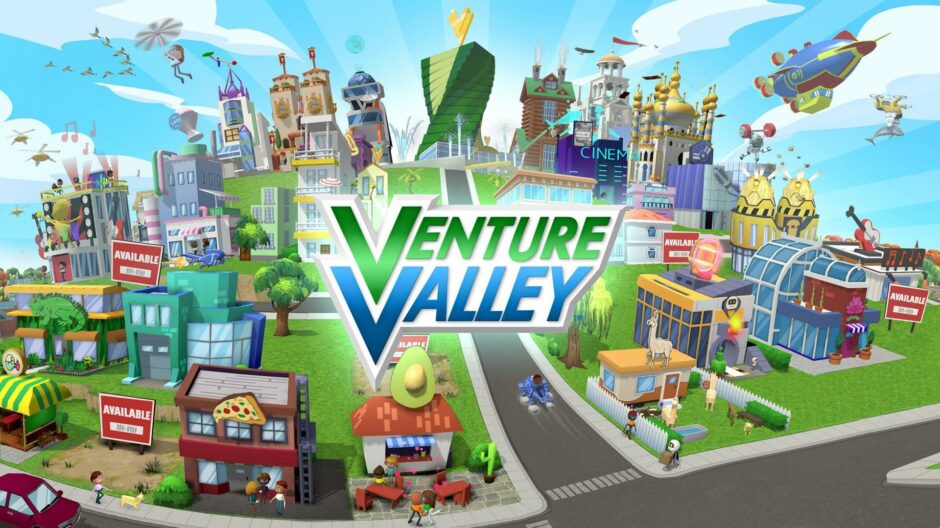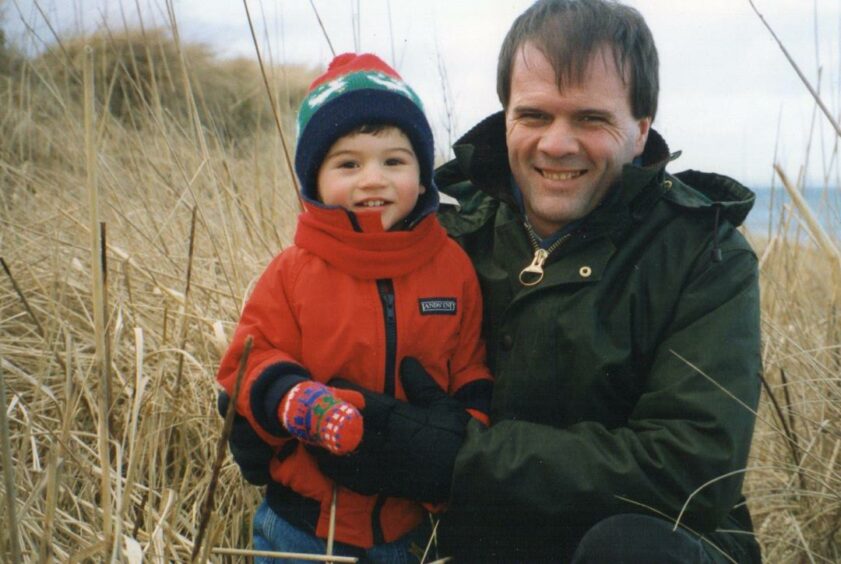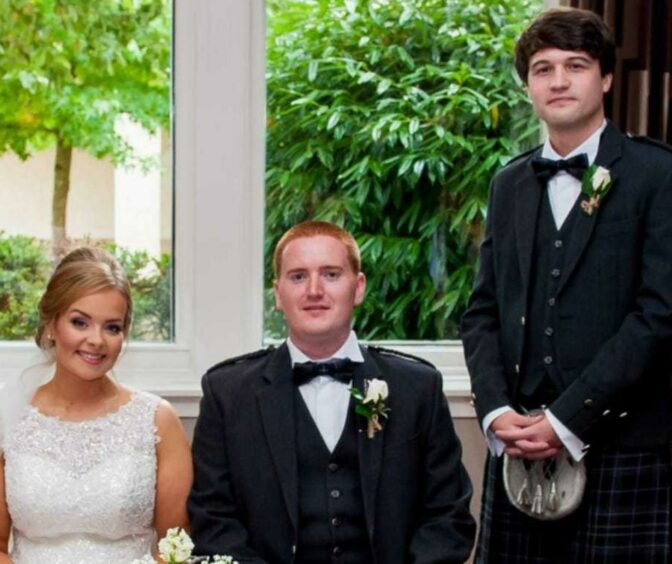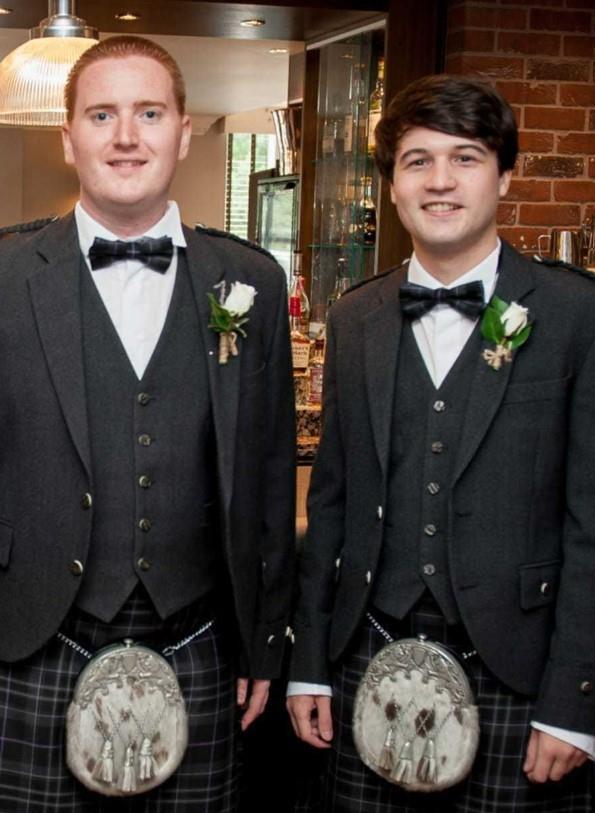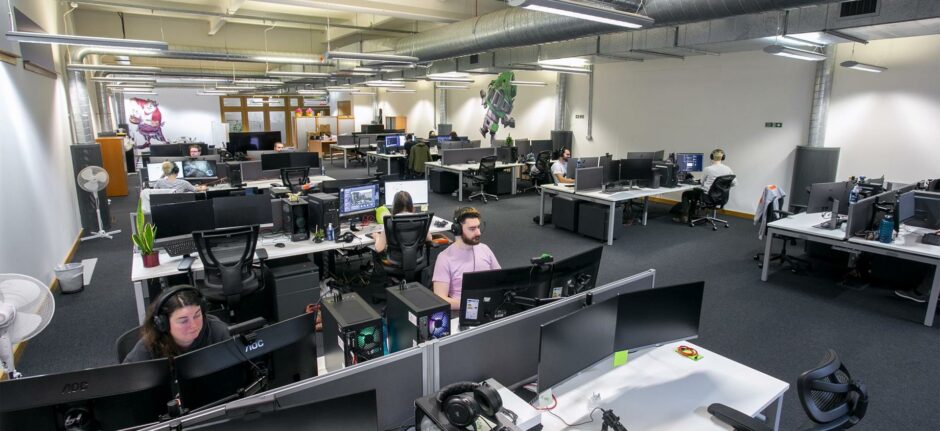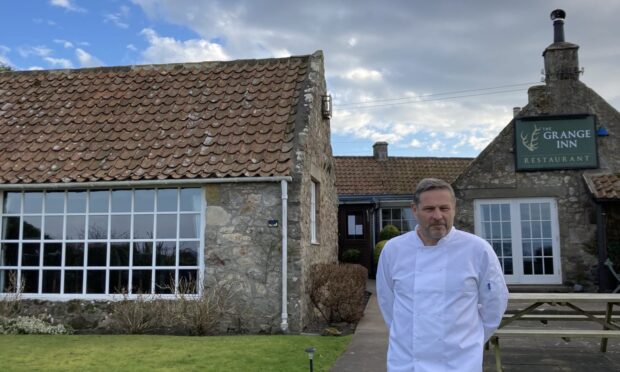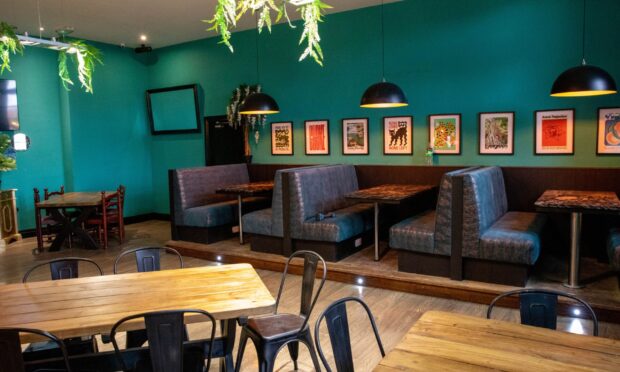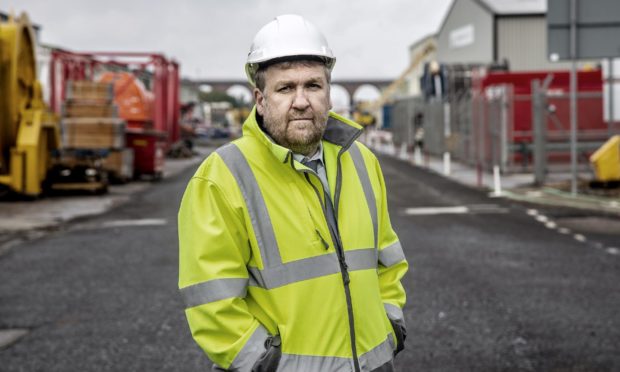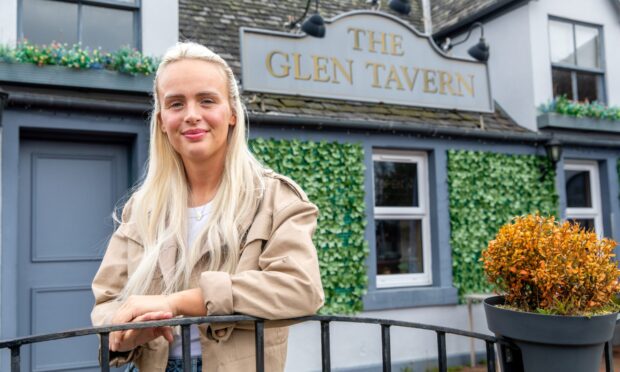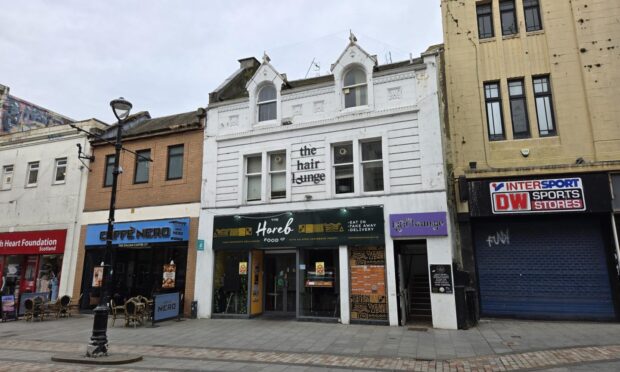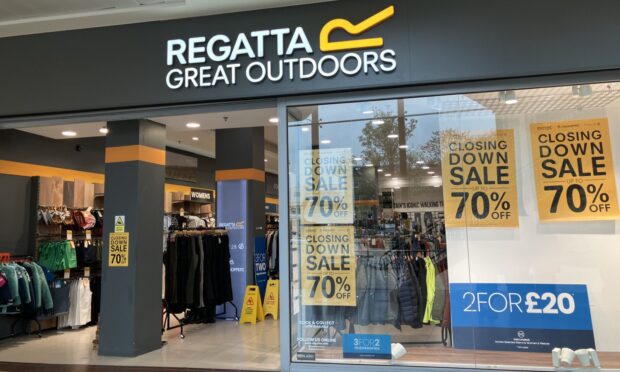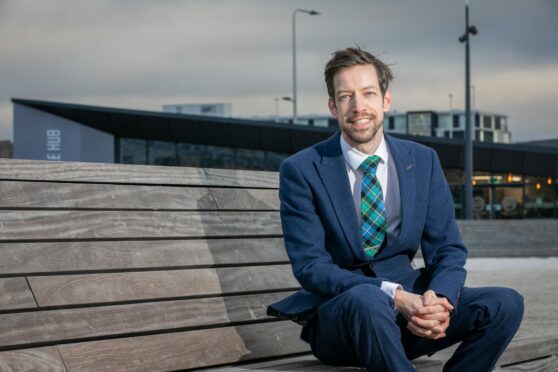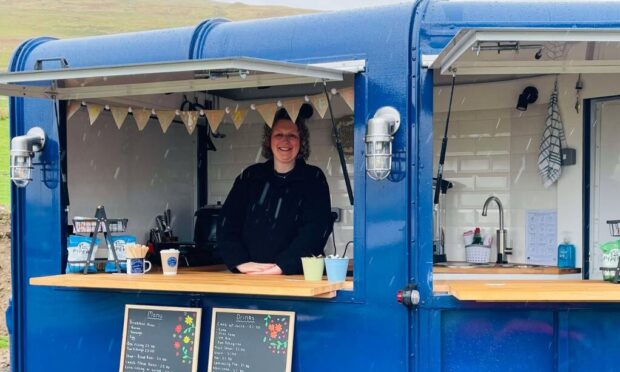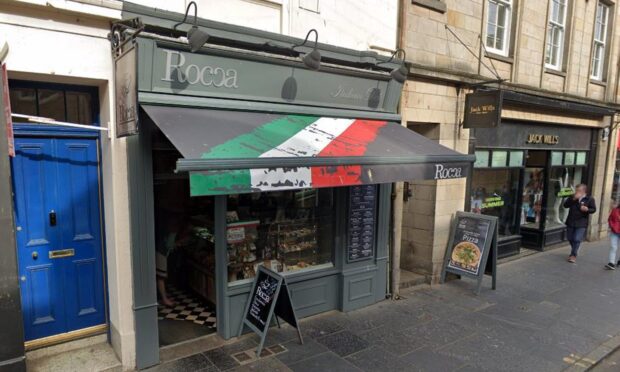Hyper Luminal Games is a Dundee firm whose annual turnover is set to soar to more than £2m.
The games development company is growing fast, with around 50 employees and several vacancies available for Dundonians keen to work in one of the city’s thriving industries.
Behind this business success are human stories of chance and poignancy involving two local men whose friendship, formed at Abertay University, is the cornerstone from which Hyper Luminal Games has bloomed.
The company name was coined by Cowdenbeath-raised Stuart Martin, who says that Hyper Luminal would not exist had it not been for Abertay lecturer Grant Clarke who opened his eyes to the game’s development course shortly after his admission interview.
“That conversation changed my whole future,” says Stuart, 30. “I would not be where I am right now had I not had that conversation.”
“I was following my head, looking for a solid career. It was ultimately my mum who convinced me to follow my heart and pursue my passion for games instead.”
“He was a big loss and I am still figuring it out – me and my mum both – because I am an only child.
At Abertay, Stuart met Ballumbie resident Rob Madden and the company began developing games for clients.
Now in a financial position to make their own games, Rob is creating Pine Hearts in memory of his father Roy, who passed away from cancer in 2019.
“Pine Hearts is about a character who has lost their father and they are trying to overcome that loss and figure out what that loss means and how they grow from that and go on to accept it,” says Rob, 30.
“Dad was my biggest supporter so I was incredibly close to him and he was a really really good guy.
“He was a big loss and I am still figuring it out – me and my mum both – because I am an only child.
“I always try to make positives from things so how can I use that to build something positive.
“The game isn’t about dwelling on it. It’s a really positive, colourful game, super bright and fun.”
This feature tells Stuart and Rob’s stories, including their childhoods, friendship and running a successful games business in Dundee. There is also advice to gamers on how they could work for the company.
It is split into the following sections:
- Stuart growing up
- Rob growing up
- Launching business after graduation
- Expanding in own headquarters
- Making own games and dad tribute
- Friendship and job opportunities
Stuart growing up
At the time, David and Jill Martin may have regretted giving their only-child free rein with his spending money shortly after arriving in Gran Canaria for a holiday.
Stuart, then aged five, went straight out and blew all of his money on a Nintendo Game Boy and then spent much of the rest of his time on the island indoors playing on it.
“I played on that Game Boy more than anything I have owned,” says Stuart. “It was my pride and joy and even though I was young and didn’t really know what to do I would keep going on it.”
This was one of Stuart’s first memories from a childhood in which he was raised by a project manager dad and a mum who worked as a cancer care nurse before becoming senior charge nurse in haematology at Queen Margaret Hospital in Dunfermline.
After attending Foulford Primary School he was among the first intake at the redeveloped Beath High School in 2003.
“They knocked it down and built a brand new building,” Stuart says. “It was an amazing experience because normally you expect the teachers and older students to know where everything is when you start a new school, but it was chaos.”
Growing up, Stuart says he was not a huge competitive online gamer, though he did enjoy RuneScape in his mid teens.
“Competitive gaming wasn’t really me,” he says. “I preferred games on my own and something at a slower pace. Massively multiplayer online games [MMOs] like Runescape offered that balance”
‘That conversation changed my whole future’
The crossroads moment in Stuart’s career came after he was interviewed for a place on an ethical hacking course at Abertay University.
“I was really into technology and had been programming at high school,” he says. “I was looking for a solid career and ethical hacking would be an area of strong demand.”
The interview panel was impressed by his 3D modelling graphic and introduced him to Abertay senior lecturer Grant Clarke, who told him his skills would be better suited to a game development course.
“Almost immediately I decided to switch,” Stuart says. “I knew straight away that this was where my heart was – I wanted to do something creative rather than just technical.
“That conversation changed my whole future. I would not be where I am right now had I not had that conversation.”
He undertook a computer game applications development degree and then did a masters in games development, during which he met Rob.
Rob growing up
Rob Madden was brought up in the Angus village of Wellbank by mum Gill, the head of home economics at Dundee High School, and dad Roy, a project manager in the Angus Council planning department.
His love of games goes back to when he played Lylat Wars on the Nintendo 64 at the age of seven.
“It was just so new and something you had never seen before,” Rob says. “It was interactive and colourful.
“It’s like a board game but there was something about it that really resonated with me and since then gaming has been one of my biggest passions.”
‘I was in my element’
As a student at Dundee High he partook in LAN [local area network] parties in which friends would bring their gaming gear to a host’s home.
“Online gaming had not really begun so we just went to our friends’, brought our equipment and played games,” Rob says.
“At school I realised I really liked computers and art. There were a lot of opportunities there and it made me realise what I wanted to get into.”
Remarkably, it just so happened that a computer arts course was being offered by Abertay University – directly opposite Dundee High.
“I was in my element,” Rob says. “I was able to come up with cool ideas and take them as far as I wanted to.
“I really enjoyed the sense of freedom and autonomy and that has probably led to where I am now. When you are self-employed there is a sense of you just getting on with it.”
Launching business after graduation
Stuart came up with the name Hyper Luminal Games – second choice behind already-taken Super Luminal – and registered the business in early 2014, towards the end of his masters degree.
This was necessary because Stuart had already begun working on an interactive simulation project with local studio TPLD.
So by the time he and Rob joined forces after meeting on their masters course they were ready to work on projects with the aim of, in Rob’s words, “bringing gamification into other sectors”.
At first they hired out their services rather than create their own games, initially with Hunted Cow Studios in Elgin.
Their first game project was Medieval Battle Europe for another company in Elgin, HexWar.
“The company specialised in historically accurate strategy games,” Rob says, “so we built that out and built four of them, maybe more, to cut our teeth.”
‘We didn’t have to pay rent, electricity…’
Helping them stay afloat in those tight early days was Abertay University, who allowed them to work in unused attic space for the first two-and-a-half years after graduation.
“It was great as it was rent-free and it made the first few thousand-pound projects worthwhile because we could pay ourselves a little bit and we didn’t have to pay rent, electricity or anything like that,” says Rob.
“We just used our own computers and kickstarted it from there.”
However, Stuart felt that Abertay could have been more up-front about the arrangement.
“The lecturers at Abertay go above and beyond to help people out but the institution seems reluctant to commit to it in the same way,” he says.
“We were given the office space under the guise of ‘don’t tell anybody’. It was encouraging for a new company to have that space but it would have been nice to have got support from the institution itself.”
Stuart recalls a conversation with the then principal of Abertay.
“The principal at the time had seen us heading into our attic space office every morning for months,” he says. “Finally he asked us ‘what do you do here?’ which started a deeper collaboration with the university.
“Over the years Hyper Luminal has maintained a close relationship with Abertay and actively supports young businesses following in our footsteps.”
Expanding in own headquarters
In 2017 the pair took the big step of leasing a 3,000 sq ft warehouse in Brown Street, opposite the council-run kennels.
“It was cold and damp but our first office so we were proud of it,” Stuart says. “When we first moved in there were four of us there.
“We grew into it and by the time we left there were more than 14 people in the team.”
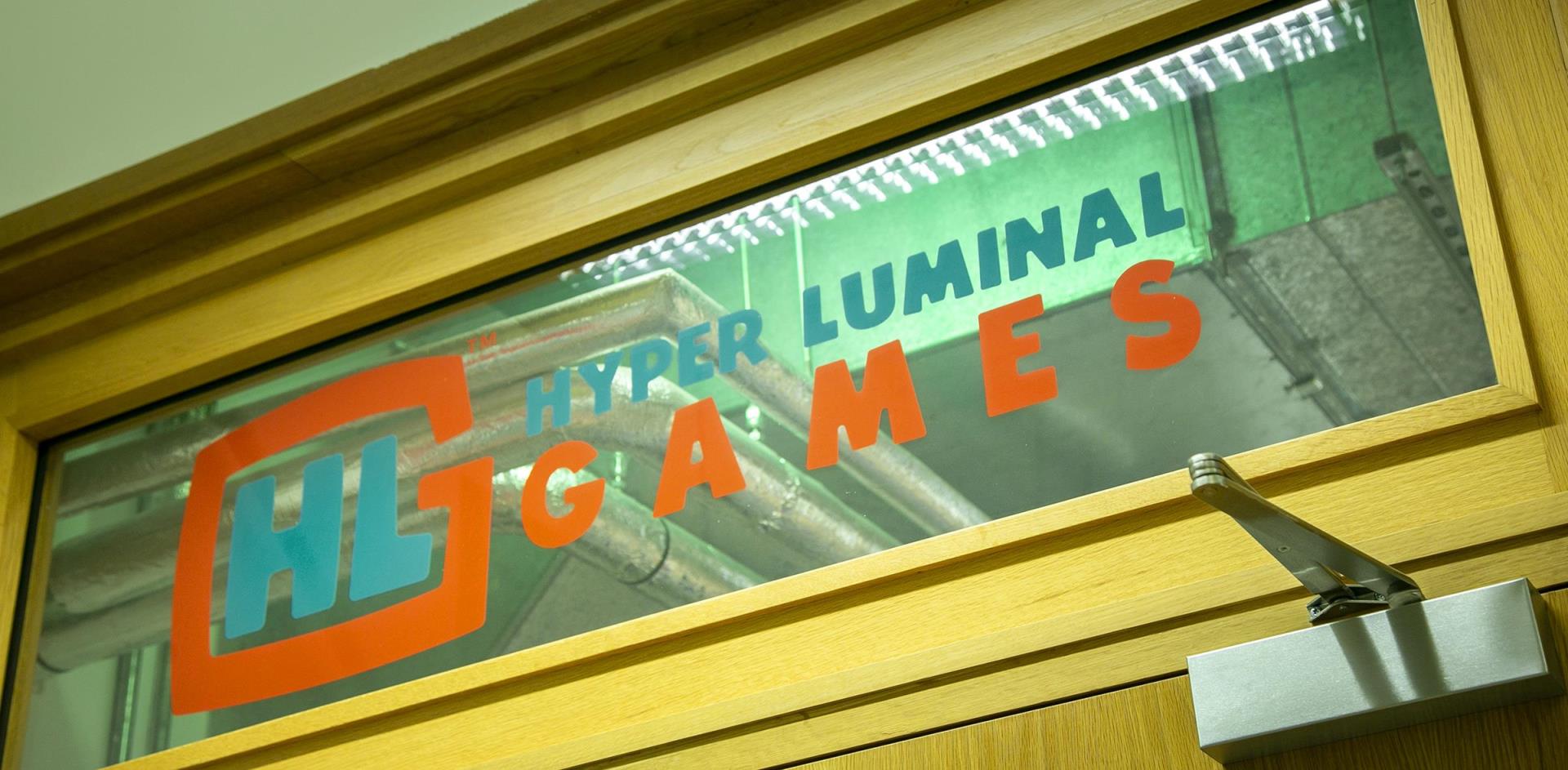
The clients kept rolling in, with Hyper Luminal working on an educational game on forestry management for the Royal Botanic Gardens in Edinburgh and a digital forensics game for a company seeking to teach police officers.
“We started picking up these sorts of projects and realised that there was a real market in producing games that had a greater purpose,” Rob says.
“They weren’t just entertainment games, they were games that taught you something or had an educational component that made them more enriching.
“We have kept doing that.”
In 2018 the company built its first game, Big Crown: Showdown, an online multi-player brawler game involving knights and horses. This was funded by London publisher Sold Out, recently rebranded as Fireshine Games.
A game to ‘teach the underprivileged’
Covid restrictions had no adverse effect on the company so in 2020 it had the finances to move to The Vision Building Greenmarket when its Brown Street home was touted for demolition.
Back then the company’s headcount was 19 and its turnover less than £1m. Two years on, more than 50 staff are employed across programming, art, design, quality assurance and management, and turnover is expected to soar to around £2.4m this year.
The company has so far delivered more than 40 games by working with a wide spectrum of clients, from high profile entertainment brands to other independent games developers.
Its most recent launch is fast-paced multiplayer business-building strategy game Venture Valley.
Developed with US non-profit organisation The Singleton Foundation, its aim is to teach students and adults entrepreneurship and financial literacy skills.
“It is a game that aims to teach the underprivileged,” Rob says.
Making own games and dad tribute
This year will also see the continued development of their own original games, Cloud Jumper and Pine Hearts.
“We usually seek publishers but this is the first time, thanks to the success of the studio, we have been able to invest in our own future and build our own games,” Rob says.
“That’s a really big step for us financially because there are a lot of companies who live and die by that.
“A lot of smaller companies come straight out of university and they want to build their own stuff straight away but they don’t have the finances to cover that so the company closes.
“We were always aware of that so built the stable financial platform first, and then once we were really secure with that we could take risker options such as building our own games.”
‘He was a big loss and I am still figuring it out’
Rob was inspired by the death of his father Roy in 2019 to create Pine Hearts.
“The story of Pine Hearts is about a character who has lost their father and they are trying to overcome that loss and figure out what that loss means and how they grow from that and go on to accept it,” he says.
“It’s a lighthearted game, cute and colourful, and we are using that to explore more nuanced topics and sensitive stories.”
The game is also informed by Rob’s childhood memories of his parents taking him to Kingussie, in the Scottish Highlands.
“The game is all based around forests and lochs,” he says. “This is the background of where I grew up and where I know a lot of the team grew up as well.
“Kingussie translates to the head of the pine and I really liked that as a notion.
“The heart of the pine is the tree and there is an emotional core to it that grows over a lifetime and I felt thematically that resonated with the story and what we wanted to say about it.
“My dad was my biggest supporter so I was incredibly close to him and he was a really really good guy.
“He was a big loss and I am still figuring it out – me and my mum both – because I am an only-child.
“The game isn’t about dwelling on it. It’s a really positive, colourful game, super bright and fun.
“You relive the memories of this little kid as he explores the countryside and fights off goblins in his imagination.
“It is soft, light and colourful but has a poignancy that will resonate with people.”
Friendship and job opportunities
Rob and Stuart’s close friendship is illustrated by the former being the best man at the latter’s wedding to Roisin.
At work they also complement each other well.
“I am a very creative individual but Stuart has an incredible foresight in terms of what the next logical step is,” Rob says.
“He is very business-minded and receptive to people. He likes to understand what people’s motivations are and how to work with them, and what the next steps are to grow a relationship, which, for the business side of things is 90% of what we need to do to grow success.
“That is what he excels in, whereas what I do is creative output. Why are we building games and why do they matter?
“We come at it from different angles but we solve the same problem, which is why it works nicely.”
Stuart says: “We have been together eight years and have a great working relationship.
“We have never had any arguments beyond normal debates and we are both aligned with what we want to achieve.
“If Rob disagrees with something or wants to talk it over then he must have a damn good reason, so it’s worth us discussing.”
‘We are recruiting all the time’
With the business thriving the pair are considering renting more office space in The Vision.
More urgently, they have plenty of job vacancies to fill.
“We are recruiting all the time,” Rob says. “We have jobs for producers, senior programmers, a lead programmer and games designer as well.
“We mainly need programmers. Everyone wants them so it is really really competitive now.”
Rob’s message to gamers looking for a career at Hyper Luminal is to consider working in quality assurance (QA).
“We have about 14 people in the QA team and are still trying to bring on more, from junior entry level to senior,” he says.
“QAs make sure the game is bug-free by playing it all the time. They test it to make sure it is working properly and doing what it should be and also making sure it is fun.
“It is the most analogous to playing but it is also different. They are not playing it for enjoyment but in a rigorous analytical way, running the same test over and over again to see what happens if and when it breaks.
“We are really proud of the culture at Hyper Luminal, we try to run the studio with the same values that we embed in our games – inclusive, compassionate and with growth and reward at the core.
“The games industry has a notorious reputation for having really bad working practices with staff turnover crazy high, a really bad work ethic, long hours and people doing projects on really tight schedules.
“Very very rarely do we have staff leaving. Everyone really enjoys working here and we hear it time and again from our staff that the team and culture is unlike anything they’ve experienced before.
“I think it is because we spend a lot of time and energy making sure people are happy and feel really feel fulfilled at what they do.”
Stuart adds “Team members Donald and Phil have been with us since the Abertay Attic days and continue to play key roles in the studio.
“Rob and I have done a fantastic job – but without the support of the entire team we wouldn’t be where we are today.”
